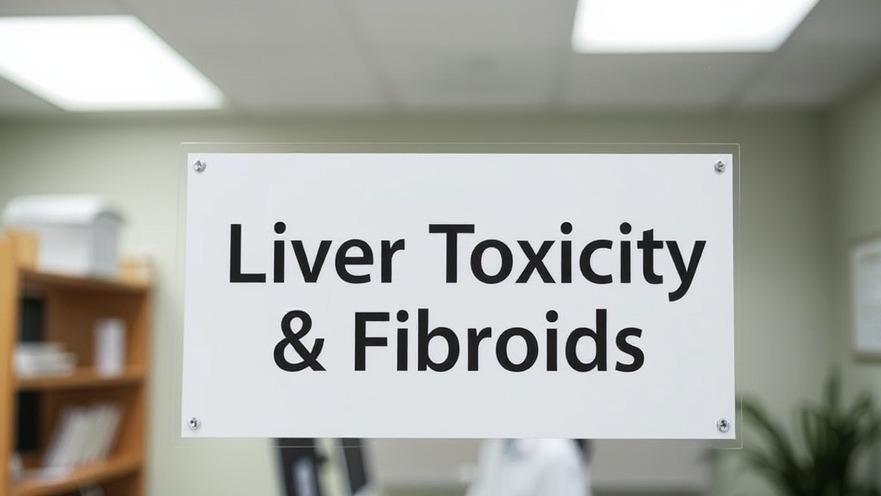
Understanding Fibroids: What Are They?
Fibroids, or uterine leiomyomas, are benign tumors made of muscle and fibrous tissue that can grow within the uterus. Though many individuals with fibroids experience no symptoms, when symptoms do arise, they can include heavy menstrual bleeding, pelvic pain, and pressure in the abdomen. Understanding what fibroids are and their potential impact on the body can empower those affected to seek proper treatment and management.
In 'The Dark Truth About Fibroids No One Explains,' the discussion sheds light on this critical health issue, prompting deeper exploration and understanding of fibroids' multifaceted impact on women's lives.
The Hidden Impact on Women’s Health
The conversation about fibroids often lacks depth, leading to many misconceptions about their consequences. Many women may not realize that fibroids can significantly alter their quality of life, affecting everything from physical well-being to emotional health. The heavy uterine bleeding associated with fibroids can lead to increased fatigue and anemia while also causing anxiety and stress regarding menstrual periods. Recognizing these effects highlights the importance of initiating open dialogues about women’s health issues in larger communities.
Exploring Treatment Options: What Can Be Done?
When it comes to treating fibroids, there are multiple routes available, depending on the severity of symptoms and the individual's reproductive plans. From medication to manage symptoms to surgical options, the choices are varied. Some women may opt for hormone therapy, which can help regulate menstrual cycles and reduce bleeding. Others might benefit from minimally invasive procedures, such as uterine artery embolization, which targets and reduces the size of fibroids. For those who may wish to preserve their fertility, laparoscopic myomectomy is an option that allows the removal of fibroids while keeping the uterus intact. Understanding the various treatment options can help individuals make informed decisions in partnership with their healthcare providers.
Common Misconceptions About Fibroids
Despite their prevalence, misconceptions about fibroids abound. One common myth is that fibroids always necessitate surgical intervention. In reality, many women manage their symptoms through lifestyle changes and medication. Another misconception is that fibroids can lead to cancer. Statistically, less than 1% of fibroids turn malignant. Education is key; knowing what fibroids are and their implications helps women approach their health proactively.
Future Trends in Fibroid Research and Treatment
As awareness grows, researchers are making strides in understanding fibroid development and treatment. Some of the most promising areas of research involve non-invasive therapies that may one day replace traditional surgical methods. Enhanced imaging technology can also lead to better diagnosis and personalized treatment plans, ultimately empowering women to take control of their health in innovative ways. This evolving landscape suggests a shift towards more holistic care and better understanding of women's reproductive health.
Actionable Insights For Women’s Health
It’s crucial for women experiencing fibroid symptoms to advocate for themselves. Keeping a symptom diary can help track patterns and progress, which can be invaluable during medical consultations. Embracing a healthier lifestyle that includes a balanced diet and regular physical activity can also contribute to symptom management and overall well-being. Women should feel encouraged to discuss their experiences with fibroids openly, fostering a community of support and shared knowledge.
How Women Can Support Each Other
One of the most empowering actions women can take is to foster open conversations about fibroids. Sharing personal experiences can provide comfort to those who might feel isolated or unsure about their own situations. Local support groups or online forums can serve as great resources where women can connect, educate, and uplift one another in navigating the complexities of health issues.
If you found these insights on fibroids helpful, consider sharing this article with someone who might benefit from the information. By spreading awareness, we can help destigmatize women’s health conversations and encourage proactive approaches to wellness.
 Add Row
Add Row  Add
Add 




Write A Comment